Ayam Cemani Hens
$642.00
Ayam Cemani hens are visually striking. They exhibit a condition known as fibromelanosis, a rare genetic mutation that causes hyperpigmentation. This results in the bird’s skin, feathers, beak, comb, wattles, muscles, organs, and even bones being completely black. The intensity of the black coloration can vary slightly between individuals, but true Ayam Cemani hens are uniformly black inside and out.</p>
<p>The hens typically weigh between 3.5 to 4.5 pounds (1.5 to 2 kg), making them slightly smaller than their male counterparts. They have a sleek, upright posture, with long legs and a graceful gait. Their eyes are dark, almost blending into their black faces, giving them a mysterious, otherworldly appearance. The comb and wattles are small and black, contributing to their streamlined look.



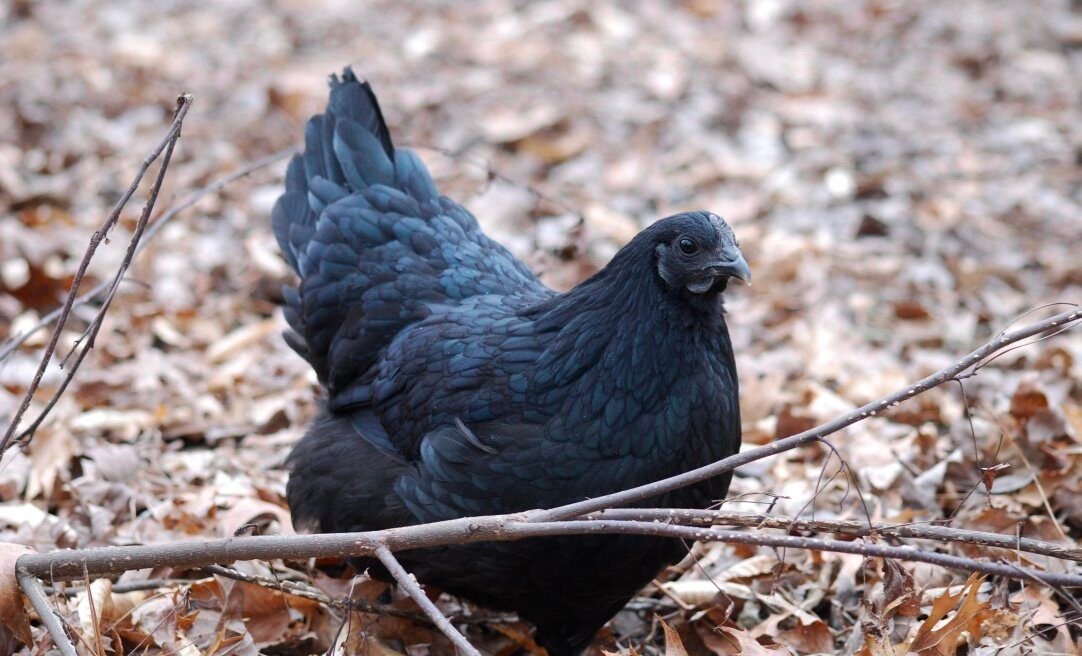
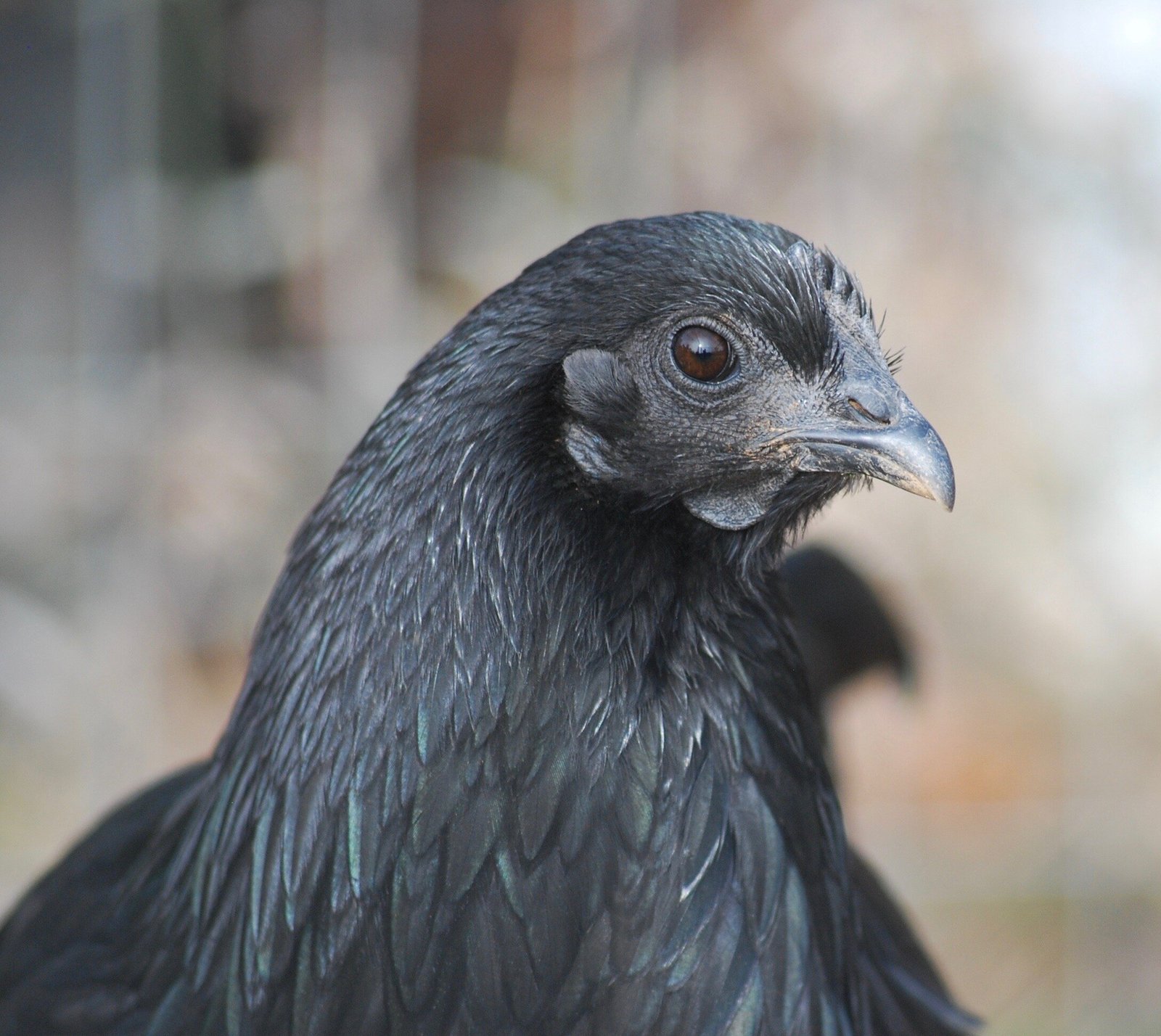

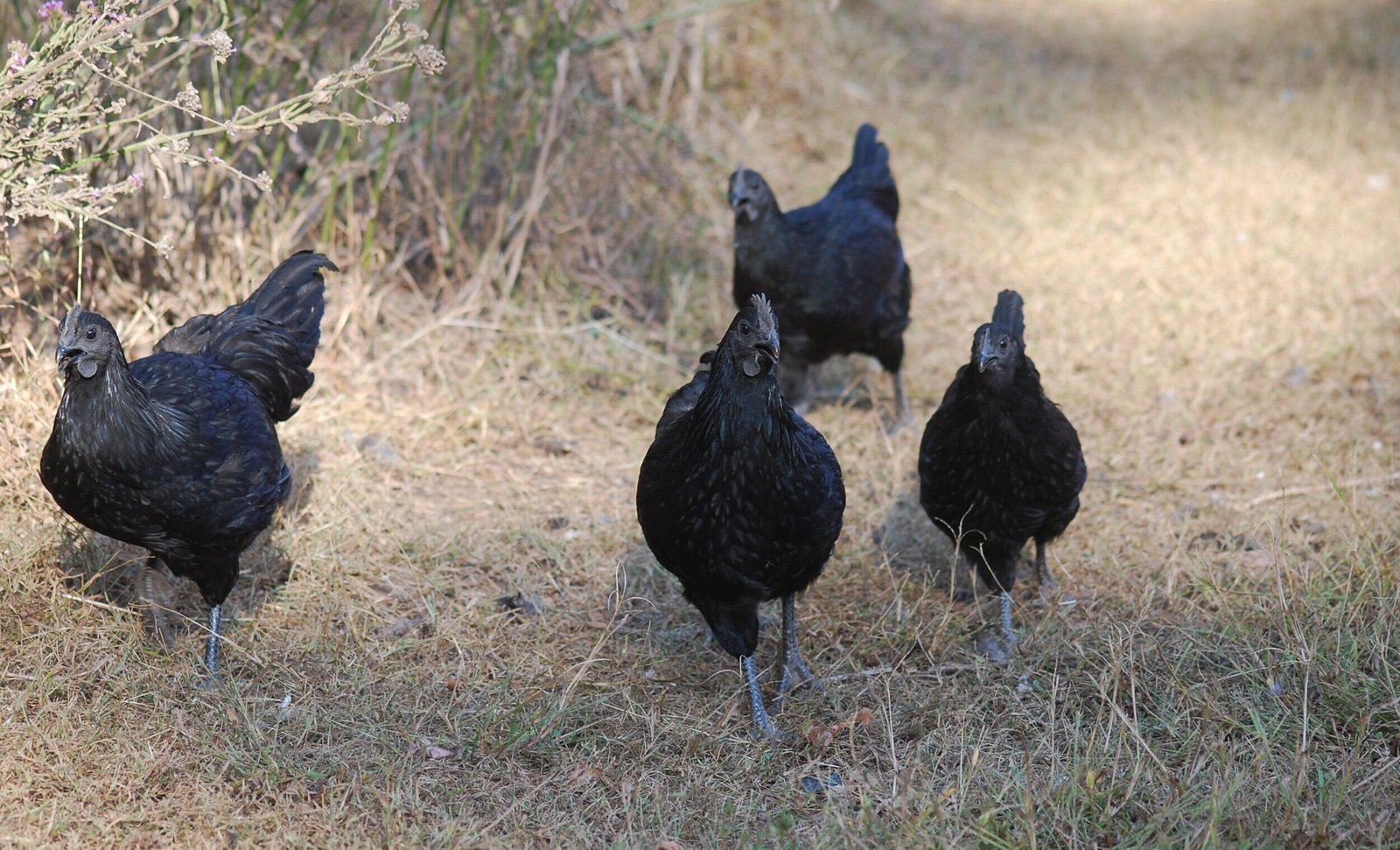
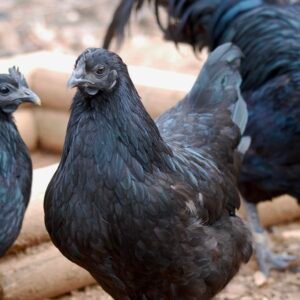
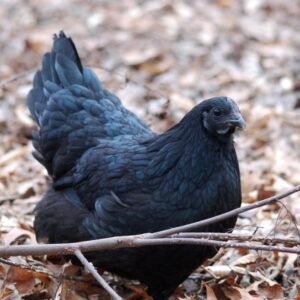

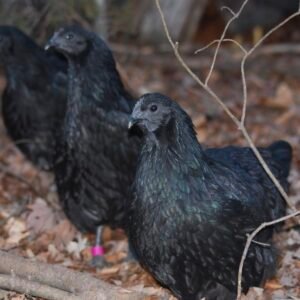
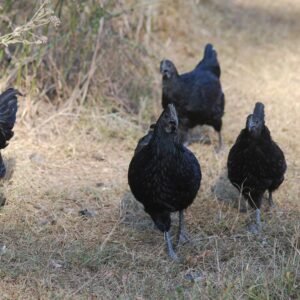
Reviews
There are no reviews yet.